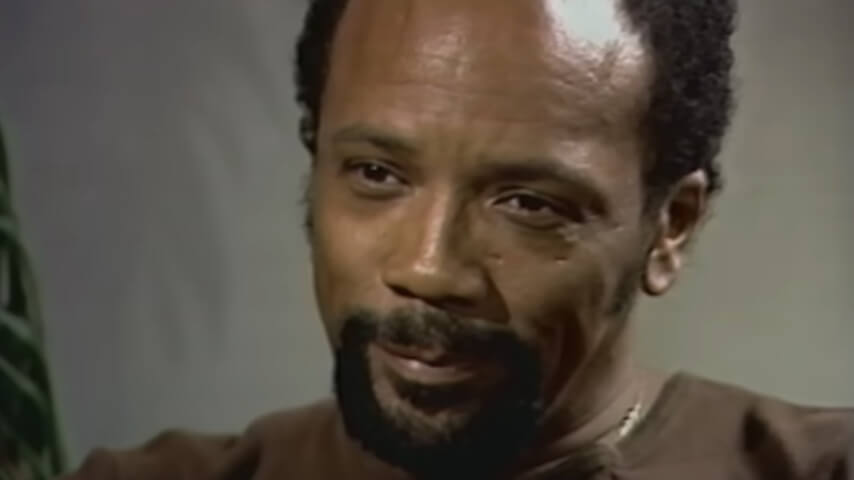Read This: Quincy Jones collaborators remember an unsual, heroic, and "wonderful human being"
Herb Alpert, Steve Lukather, Terrace Martin, and Mark Kinchen (MK) all share their memories of Jones in a new Guardian piece.
Screenshot: CBS/YouTube
The past week has had, well, a lot going on, and one of those things is an outpouring of love and remembrances for legendary music producer Quincy Jones. Tributes have been shared from his family, friends, collaborators and admirers, from Will Smith to Barack Obama to the remaining living Beatles. In this spirit, The Guardian has a new piece that reflects on Jones’ legacy from his collaborators and menteés, including musician Herb Alpert, Toto’s Steve Lukather, rapper and producer Terrace Martin, and DJ/producer Mark Kinchen (or MK).
“He was really an unusual guy—he had an authenticity that was habit-forming. He was real. He had this positive energy about him—it seemed like he was already reaching for something, for the stars,” Alpert, who signed Quincy to his label A&M Records, recalls. Remembering his interactions with artists like Frank Sinatra, Ray Charles, and Billy Eckstine, Alpert adds that “he was such a likable guy, a wonderful human being. Sensitive to others, always helpful; reaching out to young artists who were struggling to find their groove and was always complimentary and uplifting. I loved him—he was lovable.”
Lukather, who played on Michael Jackson’s Thriller among other Jones projects, points out that Jones was a “great casting director” who brought disparate musicians together (even beyond “We Are The World”). “Quincy is the only guy that can do a solo album without playing or writing anything. Somehow, no matter what he did, there was a Quincy Jones sound, even if he didn’t play, sing, write or whatever. He was a director,” Lukather says. MK remembers Jones teaching him about the technical aspects of producing as well as the big picture: “Another thing he said that stuck out was: it takes 30 songs to make a hit. Don’t expect to make a hit every time—it’s gonna take you around 30 songs. I’m like, all right, I guess I gotta go make 29 more songs!”
Martin sees Jones’ embrace of hip-hop as something that helped bridge the gap between generations of music fans. “His musical legacy is like an action movie, filled with love, drama … like a Bruce-Willis-in-the-80s type feel. It’s heroic: he broke a lot of barriers,” Martin says. “And he taught me that there’s music and the music business, and make sure you take care of your business: your franchise, your brand, make sure everything is passed through how you perceive taste to be. But the main thing that anybody can take from Quincy, God rest his soul, is that the biggest ego in the room should always be the song.” You can read the full piece for yourself here.